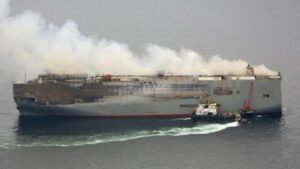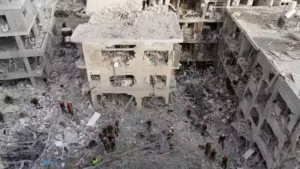Today:
Saturday, July 5 2025
What are You Looking For?
Trending News
Flash Story
 Red Honey Trick for ED – Improve Bedroom Performance with This Simple Recipe
Red Honey Trick for ED – Improve Bedroom Performance with This Simple Recipe
 Arthur Ashe won Wimbledon 50 years ago. His influence continues to inspire a new generation of athletes
Arthur Ashe won Wimbledon 50 years ago. His influence continues to inspire a new generation of athletes
 ‘We want an answer’: They fear their relatives are among the hundreds of bodies piled up at a crematorium in Mexico
‘We want an answer’: They fear their relatives are among the hundreds of bodies piled up at a crematorium in Mexico
 Why Tesla’s Cybertruck has been such a flop
Why Tesla’s Cybertruck has been such a flop
 ‘It’s weird but also insanely cool’: McLaren’s Lando Norris on the dream and dilemma fueling his F1 title ambitions
‘It’s weird but also insanely cool’: McLaren’s Lando Norris on the dream and dilemma fueling his F1 title ambitions
Editor's Picks
Main Story
Trending Story Now
About The Author

USA Independent
USA Independent is a cutting-edge digital news portal dedicated to delivering reliable, unbiased, and up-to-the-minute news to readers across the United States and beyond. Established with the mission of fostering transparency and informed public discourse, USA Independent covers a wide range of topics, including politics, business, technology, culture, health, and global affairs.

































